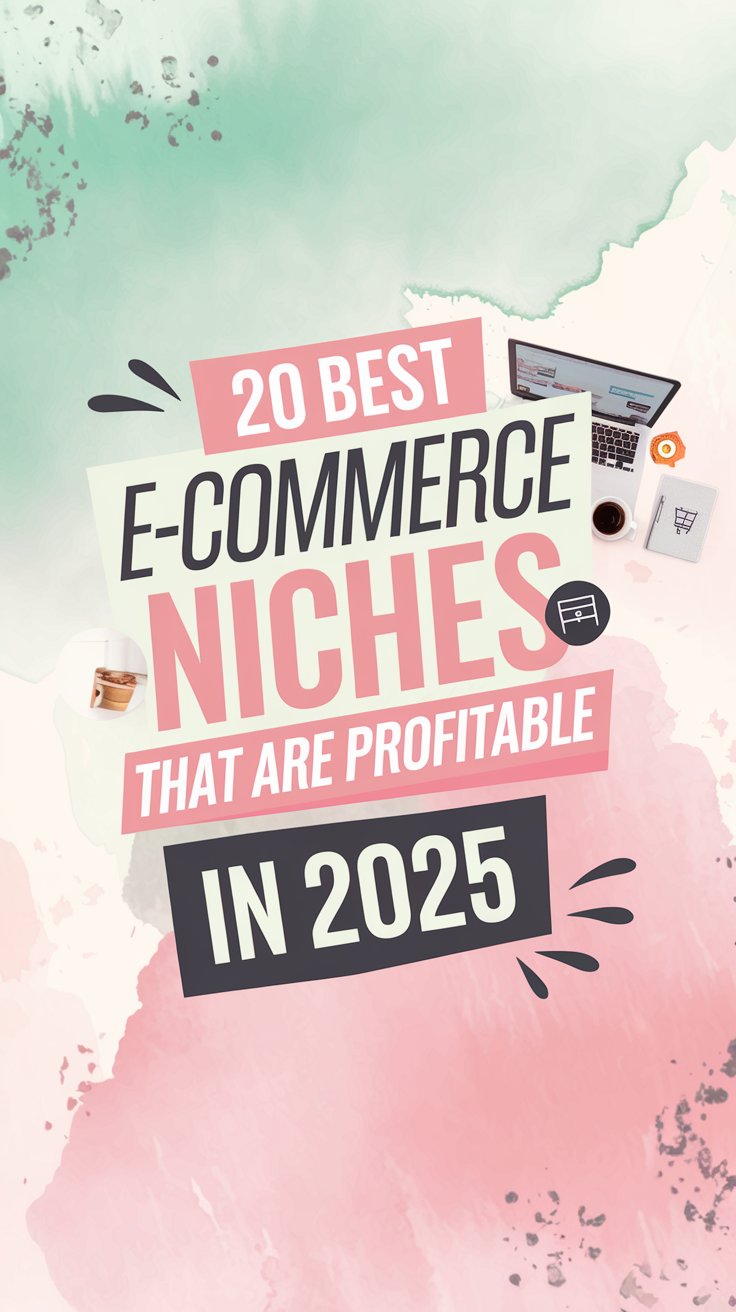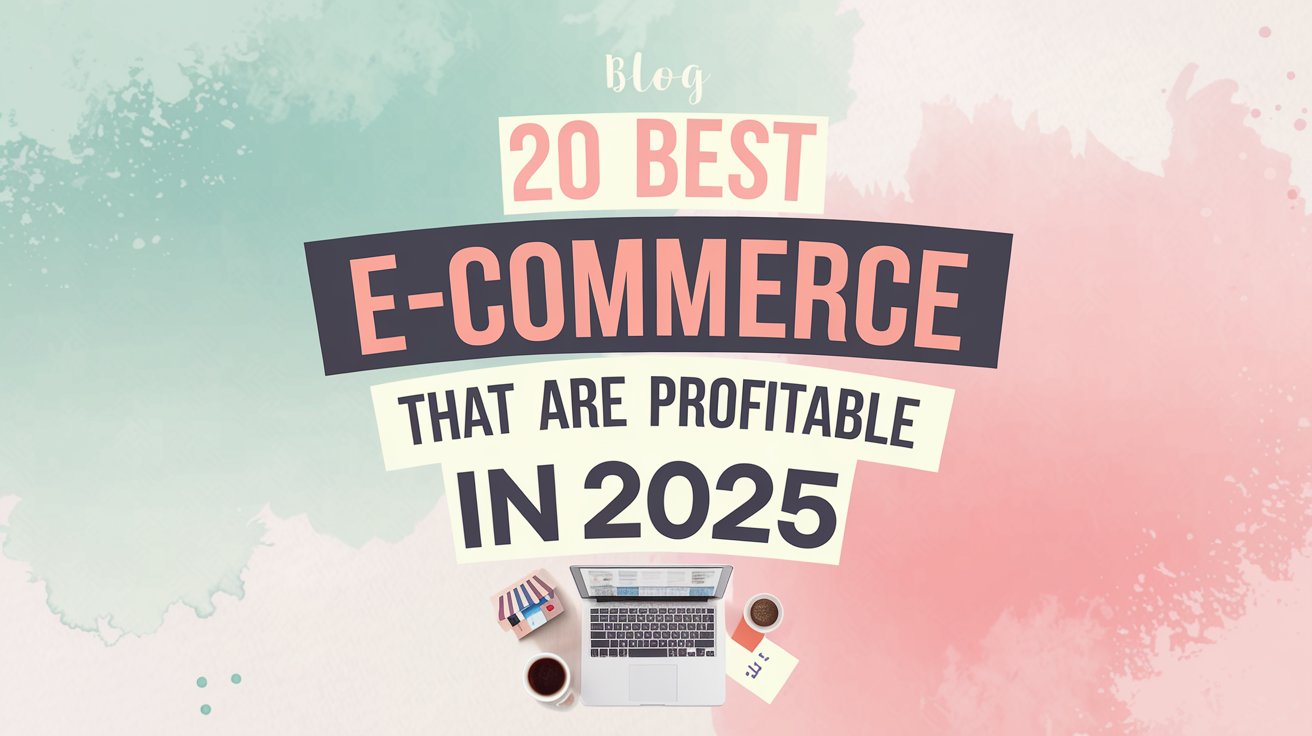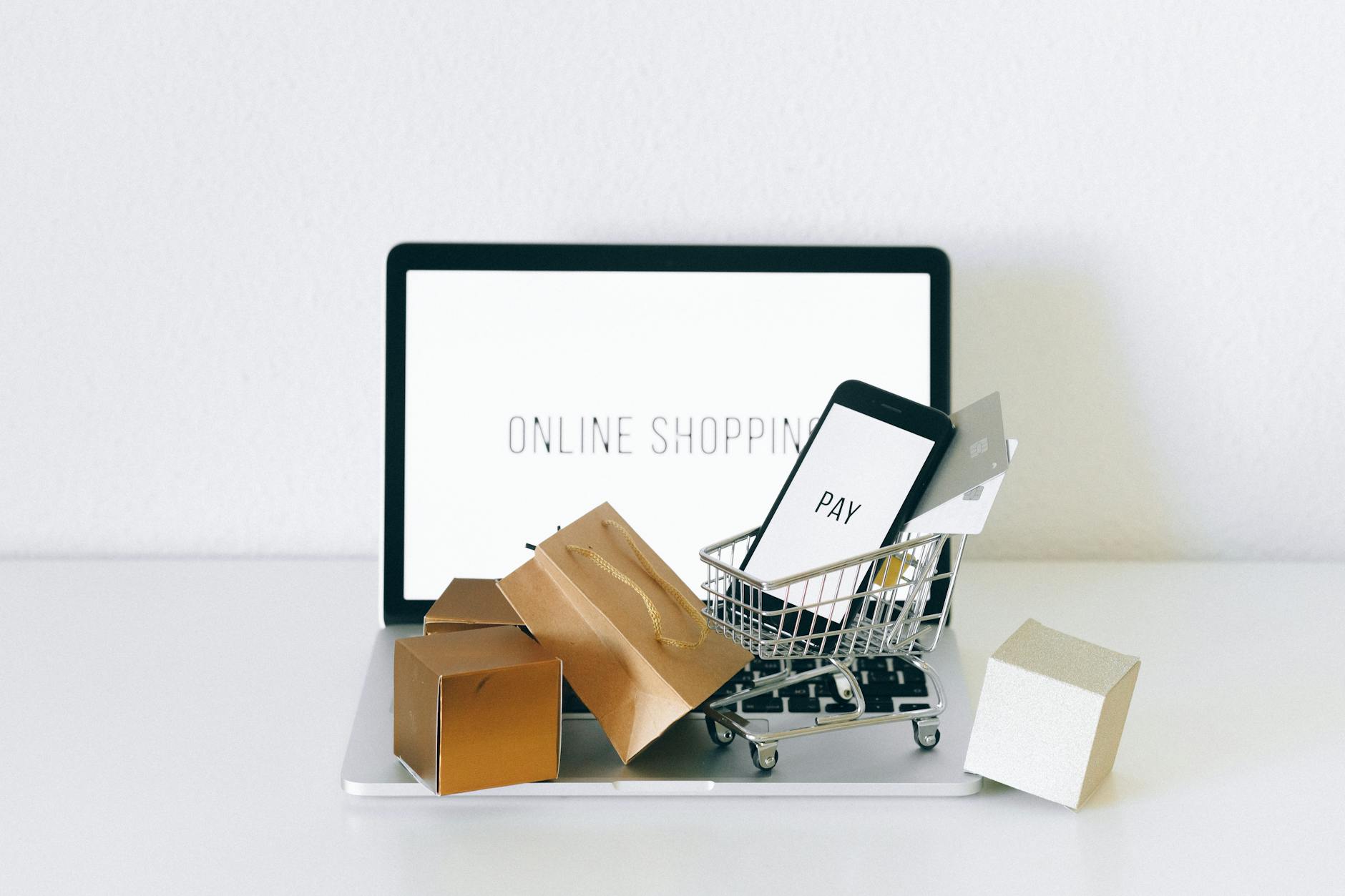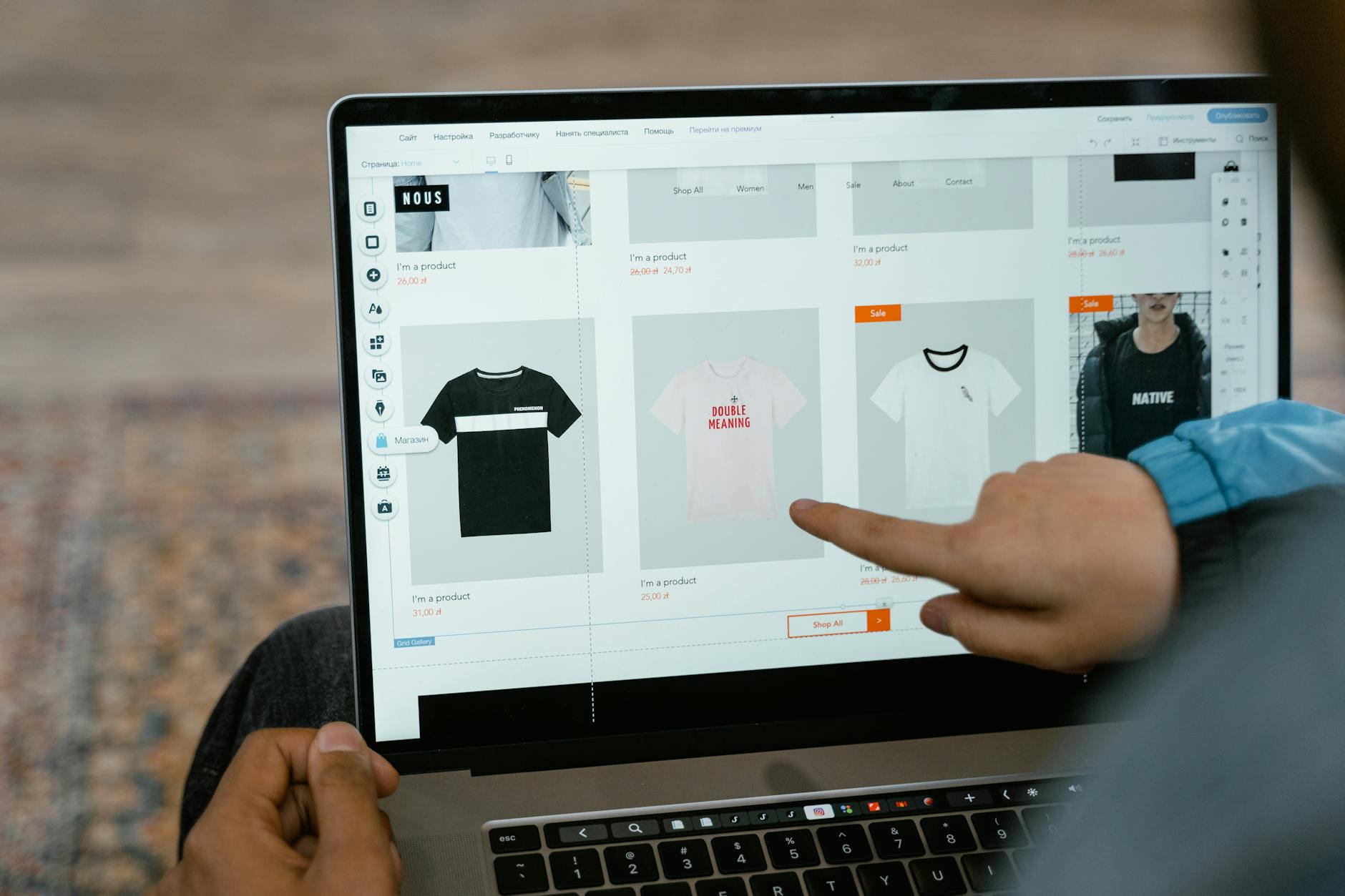Finding the best e-commerce niche is like setting the foundation for a successful online business. With 2025 on the horizon, aspiring entrepreneurs with ADHD need niches that combine profitability, productivity, and focus.
This guide aims to simplify your choices, showcasing the best e-commerce niches tailored for those ready to take the leap into entrepreneurship.
If you’re searching for a niche that aligns with your goals and challenges, you’re in the right place.
Read More About Ecommerce:
Discover actionable insights, and watch this video for even more ideas: Top 10 Niches For Dropshipping in 2025 📈.
Looking for comprehensive advice on getting started? Explore this helpful internal resource: https://www.theworkathomeblogger.com/ecommerce-side-hustles/.
Understanding E-Commerce Niches

Before diving into the best e-commerce niches for 2025, it’s essential to grasp what makes a niche stand out. A niche is more than just a category; it’s a focused segment of a market with specific customer needs. By targeting a niche, you can stand out in a crowded marketplace and build strong connections with your audience.
For entrepreneurs with ADHD, the right niche isn’t just about profitability. It’s about finding something that aligns with your interests, keeps your focus intact, and feeds your productivity.
Ready to start your Ecommerce endeavor? Start with this great deal from Shopify for only $1!
Start your e-commerce business for FREE with Shopify, and when your trial ends, you can start for only $1 the first month. Sign up for a free trial (3 days) and your first month is $1. Then earn 1% for every sale as credits to use on your Shopify subscription. Make sales and have Shopify pay for itself! Terms apply
Why Niches Matter in E-Commerce
E-commerce niches offer a massive advantage by narrowing competition and creating opportunities to connect deeply with a defined audience. Instead of competing in a broad and often oversaturated market, you carve out a unique space for yourself.
Here’s what makes niches so valuable for your online business:
- Focused Marketing: Targeting a niche allows you to craft specific messages that appeal directly to your audience.
- Brand Loyalty: Customers feel understood in niche markets, which builds trust and long-term loyalty.
- Profitability: A well-selected niche often leads to higher conversion rates because you’re speaking directly to a specific group.
Finding the best e-commerce niches means discovering areas where demand meets your interest and knowledge. It’s about pairing passion with potential.
Types of E-Commerce Niches to Watch
Understanding the different types of niches is the first step to success. Here are some niche types you might consider for 2025:
- Passion Niches These are niches driven by hobbies or interests, like pet products, fitness, or gaming. People spend more on things they love, making these areas a goldmine for sales.
- Problem-Solving Niches Products that solve specific problems—whether it’s eco-friendly cleaning supplies or ergonomic office chairs—tend to resonate deeply with customers. These niches are particularly relevant for productivity-focused individuals.
- Lifestyle Niches Targeting specific lifestyles, like minimalism or tech-savvy living, can help you align with broader trends. For instance, eco-consciousness is a growing movement influencing buying behaviors.
For more insights, you can explore this external resource: Top 13 Ecommerce Trends (2024 & 2025).
What Makes a Niche Profitable?
Every aspiring entrepreneur dreams of a profitable niche. So, what defines one? Look for these factors:
- Demand and Growth: Study trends to identify whether the niche is growing. Are more people searching for these products?
- Low Competition: Not all niches are saturated. Look for gaps where you can stand out.
- Repeat Purchases: Niches with products people buy repeatedly—like skincare or subscription services—are particularly lucrative.
To dig deeper into potential niches, check out this guide on 9 Best Ecommerce Niches in 2025.
Staying Aligned with ADHD and Productivity
For anyone managing ADHD, the right niche should not only fuel your entrepreneurial fire but also help maintain focus. How do niches align with productivity? Start with these questions:
- Does the niche genuinely interest me?
- Will working in this niche provide the motivation to stay consistent?
- Can I streamline processes to avoid distraction?
These questions can help steer your decision-making while choosing the best ecommerce niches that align with your needs.
Examples of Evergreen Niches
Some niches perform well regardless of trends. These are great for entrepreneurs looking to start and sustain their e-commerce journey:
- Health and Wellness (e.g., supplements, yoga gear)
- Home Office Equipment
- Recommerce (reselling thrifted or refurbished items)
If you’re curious about long-term potential businesses, consider looking into 10 Best Ecommerce Businesses to Start in 2025.
Photo by Berna
Top E-Commerce Niches for 2025
Choosing the right niche is the cornerstone of building a successful online business. As e-commerce trends continue to shift, staying ahead of the curve means tapping into markets with high demand and growth potential. Let’s jump into the top niches for 2025, each offering exciting opportunities for entrepreneurship.
1. Health & Wellness Products
The health and wellness industry is booming, and it shows no signs of slowing down. Consumers are more committed than ever to improving their well-being, making this niche highly profitable. From fitness gear and yoga mats to dietary supplements and skincare, there’s a wide variety of products to sell.
Key trends include:
- Personalized supplements designed for individual health goals.
- At-home fitness equipment catering to remote lifestyles.
- Stress relief and mental health tools like weighted blankets and mindfulness journals.
With the market expected to expand further, there’s plenty of space for aspiring entrepreneurs to stand out.
For inspiration on this niche, check out Top 13 Ecommerce Trends (2024 & 2025).
2. Eco-Friendly Products
Sustainable living is no longer just a trend; it’s becoming a lifestyle standard across the globe. This niche revolves around selling products that help reduce environmental impact while appealing to eco-conscious consumers.
Popular items include:
- Reusable household items like silicone food bags or bamboo utensils.
- Biodegradable and compostable packaging for everyday use.
- Energy-efficient products like solar-powered gadgets.
If you’re passionate about the environment, this niche is perfect for combining purpose with profitability. The demand for eco-friendly solutions is only growing, making it a sustainable choice in more ways than one.
You can explore more insights about sales growth in this niche through 9 Best Ecommerce Niches in 2025.
3. Pet Supplies
Pet owners are spending more on their furry friends than ever before, creating a thriving market for pet products. From stylish pet apparel to high-tech gadgets like GPS collars, this niche is packed with potential.
Tailored offerings that customers love include:
- Organic and allergy-free pet food.
- Subscription options for treats or toys.
- Furniture solutions like modern pet beds or climbing wall sets for cats.
If you adore pets, this market lets you turn that passion into a rewarding business. Pet owners are always looking for unique items to keep their companions happy and healthy.
4. Home Office Equipment
With remote work becoming the norm, the demand for home office essentials has skyrocketed. Entrepreneurs have a fantastic opportunity to tap into this evolving landscape by offering stylish, functional, and ergonomic equipment.
Hot products to consider:
- Adjustable standing desks and ergonomic chairs.
- High-quality webcams and microphone setups for virtual meetings.
- Organization tools like cable management systems or desk organizers.
Whether it’s productivity boosters or creating a focused workspace, home office equipment meets both practical needs and lifestyle changes.
For additional profitable niches, you can explore 10 Best Ecommerce Businesses to Start in 2025.
5. Subscription Boxes
Subscription boxes have transformed how consumers interact with brands. Whether it’s a monthly box of skincare products or curated books, this business model hooks customers through convenience and personalization.
Popular subscription box ideas include:
- Healthy snacks or meal prep services.
- Niche-specific hobby kits like arts and crafts or gardening.
- Surprise boxes for pets or themed gifts.
Why is this niche thriving? It builds brand loyalty while guaranteeing recurring revenue. It’s ideal for entrepreneurs looking for long-term customer relationships.
For more insights on this and similar trends, check out 15 Top Ecommerce Niches in 2025.
Photo by Nataliya Vaitkevich
Starting Your E-Commerce Business
When you’re ready to dive into e-commerce, it’s important to start on the right foot. By focusing on the basics—understanding your target audience, creating a clear plan, and leveraging effective marketing techniques—you’ll be well on your way to establishing a thriving online business. Let’s take it step by step.
Identifying Your Target Market
The first step in building any successful e-commerce business is understanding who you’re selling to. After all, how can you connect with potential customers if you don’t know what they need?
- Conduct Surveys: Use tools like Google Forms or SurveyMonkey to gather insights directly from your target audience.
- Competitive Analysis: Look at what similar businesses are doing. What are customers saying in reviews? What problems aren’t being solved effectively?
- Research Online Communities: Platforms like Reddit, Facebook Groups, and Quora are gold mines for finding customer pain points.
Your goal should be simple: identify the problems you can help solve and tailor your offerings to meet those needs. Sites like Reddit’s r/Ecommerce often have invaluable discussions about trends and customer desires in various niches.
Creating a Business Plan
A business plan acts as a road map, guiding you from idea to execution. It might sound overwhelming, but don’t worry—it doesn’t need to be overly complicated.
Here’s what to include:
- Mission Statement: What drives your business? What are its goals?
- Market Analysis: What is the competition like, and where do you fit in?
- Product Line: A detailed description of what you’re selling and why it’ll stand out in your niche.
- Budget: List your startup costs, ongoing expenses, and expected revenue.
- Marketing Plan: Pinpoint channels (social media, email) and strategies for reaching your audience.
Tools like this Ecommerce Business Blueprint from Shopify can help you design a plan tailored to your needs.
Marketing Strategies
Once your store is up and running, it’s time to bring in traffic. But how do you stand out in a sea of competitors?
- Social Media: Regular updates on platforms like Instagram or TikTok can help showcase your products. Visual content thrives here.
- Email Marketing: Drive repeat customers by offering exclusive discounts or early access to new products.
- Search Engine Optimization (SEO): Ranking high on search engines ensures potential customers find your site. Use keywords like “best e-commerce niches” to attract search traffic.
Additionally, consider using platforms like Amazon for more visibility. To get started there, explore this guide for tips on setting up a storefront and optimizing listings.
Photo by RDNE Stock project
This balanced approach ensures you’re not just another store but a brand customers love and trust. Starting an e-commerce business might feel challenging at first, but with consistent effort and the right strategies, you’re setting yourself up for long-term success.
Challenges in E-Commerce
Running an e-commerce business can feel daunting, especially for those managing ADHD while navigating entrepreneurship. It’s not just about selling a product; staying focused, managing competition, and handling every detail requires a unique blend of strategy and discipline. Here are two areas that entrepreneurs in e-commerce often find challenging and ways to address them.
Managing ADHD in Entrepreneurship
Living with ADHD while trying to build an online business isn’t always smooth sailing. Distractions and procrastination can be frequent roadblocks. But, it’s not impossible to succeed—your ADHD can even serve as an advantage when channeled effectively.
Here are some tips to maintain focus and productivity:
- Break Tasks Into Steps: A long to-do list is overwhelming. Break each task down into smaller, actionable steps.
- Use Tools That Help Structure Your Day: Apps like Trello or ClickUp are lifesavers for organizing projects and staying on track.
- Set Time Blocks: Allocate specific times for tasks. The Pomodoro Technique divides your work into focused intervals, reducing chances for distraction.
- Minimize Distractions: Work in a quiet space, turn off notifications, and maintain a clutter-free desk.
- Celebrate Small Wins: ADHD brains thrive on rewards. Celebrate completing tasks with treats, breaks, or anything that makes you smile.
Managing ADHD as an entrepreneur isn’t about perfection; it’s about progress. Even if distractions creep in, refocus and keep moving.
Competition Analysis
Competition in e-commerce is fierce, no matter the industry or niche. Whether you’re blogging about products, starting affiliate marketing, or running your online store, it’s critical to understand who you’re up against.
Why does competition analysis matter? It allows you to:
- Identify Market Gaps: See what competitors aren’t offering and fill the void.
- Understand Customer Satisfaction: Read competitor reviews. What are customers loving? What complaints can you solve?
- Set Competitive Pricing: Research competitor pricing to find that sweet spot between affordability and value.
- Stand Out with Your USP (Unique Selling Proposition): Figure out why someone should buy from you instead of others.
Start with tools like SEMrush to analyze your niche’s landscape or simply observe how competitors operate. Check their social media, website layout, and product descriptions. This gives you a firsthand look at what works and what doesn’t.
Whether battling a saturated market or just starting, knowing who your competitors are will help you refine your strategies and find an edge.
Future Trends in E-Commerce
The e-commerce industry never stays still, and by 2025, the changes will be even more dramatic. With technology evolving and customer expectations rising, the future of online shopping will demand creativity and adaptability. Let’s dive into two areas shaping this transformation.
Technological Advancements: Explore how technology will shape e-commerce
Technology continues to redefine how we shop and sell online, making businesses more efficient and customer-centric. By 2025, new tools and methods will drive e-commerce trends that every entrepreneur should be aware of.
- Artificial Intelligence (AI): AI will go beyond chatbots and recommendations. Expect it to analyze purchasing patterns in real-time and predict customer needs before they even know what they want.
- Augmented Reality (AR): Imagine letting customers “try” products virtually, like placing a couch in their living room using a smartphone. This tech makes online shopping feel like a personal showroom experience.
- Blockchain for Transparency: Blockchain tech will offer safer, more transparent transactions. Customers will be able to track every step of the supply chain for ethical purchases.
- Voice Commerce: With devices like Alexa or Google Assistant, people can shop just by speaking. It’s all about speed, simplicity, and convenience.
To understand how these innovations could be applied in your business, check out 8 Trends Accelerating the Future of E-commerce in 2024.
Photo by Mikhail Nilov
Customer Experience Innovations: Discuss trends like personalization and customer service improvements
Customer expectations are rising, and the businesses that deliver exceptional experiences will capture the most loyal customers. Personalization and innovation in customer service are quickly becoming the norm, not just a bonus.
- Hyper-Personalization: With AI tools, stores can offer specific product recommendations, dynamic pricing, and custom offers based on customer behavior.
- 24/7 Support with Chatbots: Automated customer support is evolving, providing around-the-clock assistance that feels human. These bots can now handle more complex issues, saving time and money for businesses.
- Faster Delivery: As customers expect near-instant results, advancements in logistics like drone delivery and local warehouses are stepping up to meet demands.
- Loyalty Programs Revamped: Platforms are introducing gamified rewards, encouraging repeat purchases while making shopping fun.
For more insights into trends, explore this article: The Future Of E-Commerce: Trends To Watch In 2024.
The future of e-commerce is built on balancing innovative technology with superior customer experiences. Successful online businesses will focus on blending these trends into their operations seamlessly.
Conclusion: Why Choosing the Right E-Commerce Niche Matters
Your choice of niche can make or break your e-commerce journey. It isn’t just about selling a product—it’s about connecting with a specific audience and solving their unique problems. With the growing opportunities in 2025, it’s essential to carefully select a niche that aligns with your skills, passions, and long-term goals. Whether you’re dealing with ADHD or simply searching for focus in entrepreneurship, the right niche can keep you productive and driven.
Remember, the best e-commerce niches aren’t only profitable but also sustainable. They help you balance purpose and profitability, whether you’re diving into eco-friendly products or starting a home office equipment store.
If you need more guidance, explore this excellent resource on Top 13 Ecommerce Trends (2024 & 2025) for deeper insights into upcoming industry dynamics.
Make thoughtful decisions, and let your passion guide your online business’s future success.
Frequently Asked Questions About E-Commerce Niches
If you’re diving into the world of e-commerce, you probably have questions about choosing the best niche and making your online business thrive. Here’s everything you need to know, broken down into common questions.
What is an E-Commerce Niche?
An e-commerce niche is a focused segment of a larger market. Instead of targeting broad audiences, you cater to a specific group with shared interests or needs. For example, selling eco-friendly baby products or tech gadgets for remote workers would be niche markets. By narrowing your focus, you can reduce competition, connect deeply with your audience, and boost your chances of success.
For more tips on how to identify your niche, you can explore this helpful article: 10 Foolproof Strategies for Choosing an E-commerce Niche.
Why Do E-Commerce Niches Matter?
E-commerce niches are essential because they allow you to stand out in a crowded marketplace. Think of it this way: would you rather be a small fish in a big pond or a big fish in a small, targeted pond? Niches help you build stronger relationships with customers by solving specific problems or catering to unique interests.
Want to dig deeper? Check out this resource on why ecommerce niches lead to riches.
How Can I Discover Profitable Niches?
Finding a profitable niche involves research, analysis, and sometimes trial and error. Here are some steps to take:
- Google Trends: Check if searches for related products are growing.
- Competitor Research: See what’s popular but avoid oversaturated markets.
- Online Communities: Dive into forums or social media groups to learn customer pain points.
- Passion + Demand: Combine your interests with areas that have high demand but low competition.
Need more in-depth advice? Read this guide: How to Find a Profitable Ecommerce Niche (& Start Selling).
What Are Some Examples of Thriving Niches?
Some niches tend to perform exceptionally well due to high demand and growth potential. A few examples include:
- Eco-friendly products, like reusable household items.
- Home office upgrades, such as ergonomic chairs.
- Health and wellness tools, including fitness gear and mental health aids.
For updated trends, explore this excellent resource: 8 Ecommerce Niches with the Most Growth Potential.
Should I Choose a Passion Niche or a Profitable One?
Ideally, you should aim for a balance between the two. While profitability is crucial for an online business, choosing a niche you’re passionate about keeps you motivated. Passion ensures you stay dedicated, even when the market fluctuates, while demand guarantees financial rewards.
Wondering how to achieve this balance? This guide might help: Top Niches in eCommerce: How to Choose.
Photo by MART PRODUCTION
Choosing the right e-commerce niche isn’t just about making money; it’s about connecting with your audience in meaningful ways. Hopefully, these FAQs addressed your concerns and will help you take the next steps in entrepreneurship confidently!
Here is a complete list of the 20 best e-commerce niches
1. Sustainable and Eco-Friendly Products:
– Reusable shopping bags
– Bamboo toothbrushes
– Organic skincare products
– Solar-powered gadgets
2. Fitness and Wellness:
– Resistance bands and workout equipment
– Yoga mats and accessories
– Healthy snack subscription boxes
– Fitness apparel and accessories
3. Pet Products:
– Organic pet food
– Custom pet portraits
– Pet grooming tools
– GPS pet trackers
4. Tech and Gadgets:
– Phone accessories (phone cases, screen protectors)
– Smart home devices
– Wireless earbuds
– Gaming peripherals
5. Fashion and Apparel:
– Niche-specific clothing (e.g., sustainable fashion)
– Custom-printed t-shirts
– Activewear
– Vintage or retro clothing
6. Home Decor:
– Handmade candles
– Wall art and prints
– Customized home decor items
– Indoor plants and planters
7. Beauty and Skincare:
– Natural and organic skincare products
– Makeup brushes and cosmetics
– Beauty tools and accessories
– Men’s grooming products
8. Kitchen and Cooking:
– Specialty kitchen gadgets
– Unique cooking utensils
– Gourmet spices and sauces
– Recipe books and meal kits
9. Travel and Adventure:
– Travel accessories (e.g., luggage, travel pillows)
– Adventure gear
– Maps and travel guides
– Camping and hiking equipment
10. Children’s Products:
– Educational toys and games
– Baby clothing and accessories
– Personalized kids’ items
– Eco-friendly baby products
11. Craft and DIY Supplies:
– Craft kits and materials
– Customizable DIY products
– Knitting and sewing supplies
– Jewelry-making kits
12. Jewelry and Accessories:
– Handcrafted jewelry
– Watches and watch bands
– Sunglasses
– Personalized accessories
13. Hobbies and Collectibles:
– Collectible action figures
– Vintage records and music memorabilia
– Model kits (e.g., remote control cars, airplanes)
– Art supplies and prints
14. Subscription Boxes:
– Meal kit subscriptions
– Beauty and grooming boxes
– Book clubs
– Wine or coffee subscriptions
15. Gourmet and Specialty Foods:
– Artisanal cheeses and snacks
– Organic or exotic teas and coffees
– Craft beers and spirits
– Dietary-specific foods (e.g., gluten-free, vegan)
16. Electronics Accessories:
– Laptop bags and sleeves
– Wireless chargers
– Cable organizers
– Custom phone cases
17. Party and Event Supplies:
– Themed party decorations
– Balloon arrangements
– Custom party favors
– Event planning services
18. Vintage and Retro:
– Vintage clothing and accessories
– Antique home decor items
– Retro gaming consoles and games
– Vinyl records and record players
19. Outdoor and Adventure Gear:
– Camping gear and accessories
– Outdoor clothing and footwear
– Adventure travel packages
– Survival and preparedness items
20. Personalized and Custom Products:
– Custom engraved jewelry
– Personalized home decor
– Photo gifts (e.g., custom photo books)
– Monogrammed clothing and accessories
Remember that the key to success with an ecommerce store is not just the product but also your marketing strategy, customer service, and the overall shopping experience you provide to your customers. Conduct thorough market research, stay up-to-date with industry trends, and continuously optimize your store for the best chance of profitability.
Start your e-commerce business for FREE with Shopify, and when your trial ends, you can start for only $1 the first month. Sign up for a free trial (3 days) and your first month is $1. Then earn 1% for every sale as credits to use on your Shopify subscription. Make sales and have Shopify pay for itself! Terms apply














